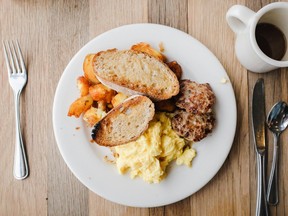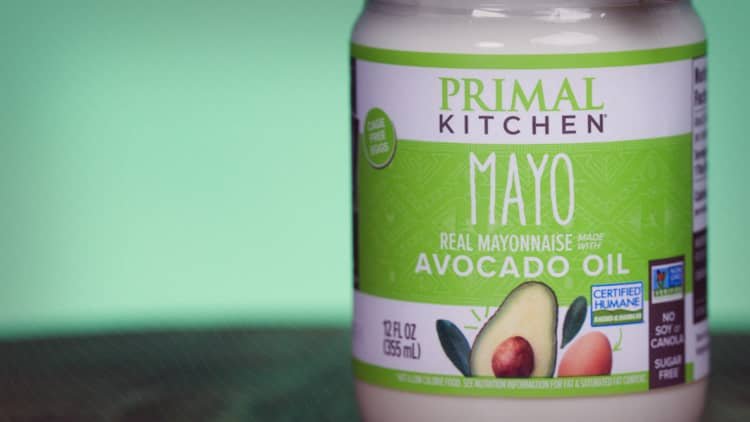Skipping breakfast, intermittent fasting, or sugary cereals and toast can all impact the energy we have later in the day
Published Jun 13, 2025 • Last updated 1 hour ago • 6 minute read

Article content
Metabolism has become a buzzword, especially in social media circles. Commercial product manufacturers are using it in their advertising campaigns and TikTok health “gurus” are building brands around it.
Science, however, is also working on debunking some of the myths surrounding metabolism.
Metabolism is a chemical process through which your body converts food and drink into energy. During the process — which runs 24/7 — your body is expending energy and burning calories, per Harvard Health. While your genes mostly dictate how slow or fast your metabolism is, age and activity levels have a part to play too, according to the health publication.
Advertisement 2
This advertisement has not loaded yet, but your article continues below.
THIS CONTENT IS RESERVED FOR SUBSCRIBERS ONLY.
Subscribe now to access this story and more:
- Unlimited access to the website and app
- Exclusive access to premium content, newsletters and podcasts
- Full access to the e-Edition app, an electronic replica of the print edition that you can share, download and comment on
- Enjoy insights and behind-the-scenes analysis from our award-winning journalists
- Support local journalists and the next generation of journalists
SUBSCRIBE TO UNLOCK MORE ARTICLES.
Subscribe or sign in to your account to continue your reading experience.
- Unlimited access to the website and app
- Exclusive access to premium content, newsletters and podcasts
- Full access to the e-Edition app, an electronic replica of the print edition that you can share, download and comment on
- Enjoy insights and behind-the-scenes analysis from our award-winning journalists
- Support local journalists and the next generation of journalists
Register to unlock more articles.
Create an account or sign in to continue your reading experience.
- Access additional stories every month
- Share your thoughts and join the conversation in our commenting community
- Get email updates from your favourite authors
Sign In or Create an Account
or
Article content
Where breakfast comes into play
What about food, and in particular, breakfast?
You may have heard the term ‘kickstarting your metabolism with breakfast,’ and perhaps you’ve even sought out and added ingredients to your morning meal.
However, according to registered dietitian and owner of Eat Well Nova Scotia, Nicole Marchand, breakfast isn’t the best way to kickstart your metabolism in the morning.
“Physical activity — a walk, a workout, even 15 minutes, is the best way to kickstart the metabolism for the day,” said Marchand.

That being said, there is a place for nutrient-dense breakfasts if you’re looking to set yourself up for success during the day. We’re talking about increased focus, productivity and energy combined with mood stability.
“Starting the day with movement and a healthy breakfast will lead to better decision making for the rest of the day as well,” Marchand said.
Advertisement 3
This advertisement has not loaded yet, but your article continues below.
Article content
“It’s easier to choose nutritious meals when you are feeling energized and when you don’t have excess hunger or sugar cravings.”
Are you doing breakfast wrong?
Let’s start with what we might be doing wrong with our morning meals.
According to Dr. Erin Woolridge, a naturopathic doctor based in St. John’s, NL, the most common issues are not focusing on nutrient density and skipping breakfast altogether.
“We don’t treat food as fuel,” she said. “I will see people eating a simple slice of toast, or just a bowl of cereal with milk, or a few pieces of fruit, and wonder why their energy is crashing mid-day. When we start to add a bit more density in the morning, we see significant shifts in energy and focus.”

Marchand explained that choosing refined carbohydrates and ultra-processed foods over high-protein, nutrient-dense breakfasts can negatively impact your day.
Advertisement 4
This advertisement has not loaded yet, but your article continues below.
Article content
“This sets you up for a day of excess hunger and carbohydrate and sugar cravings,” Marchand explained.
Why ‘intermittent fasting’ is a bad idea
Using intermittent fasting as an excuse to skip breakfast and call it healthy is something else Woolridge has noticed.
Intermittent fasting is a popular weight loss diet, but rather than focusing on when you eat, proponents look at when you eat. For example, so people will fast for 16 hours and then eat all of their calories for the day within an eight-hour window.
“It comes down to the idea that we just aren’t taught the importance of fuelling our bodies, and most of us only eat when hungry, because we have to,” she said.
Woolridge has had patients come in and share that they are exhausted all the time. A journey of exploring their diets typically reveals that they’re eating next to nothing for breakfast, having their largest meal at the end of the day, and also bingeing on snacks all night.
Advertisement 5
This advertisement has not loaded yet, but your article continues below.
Article content
Woolridge asks them some questions to bring home the significance of nutrient-dense morning meals.
“Why would we only fuel our vehicles at the end of the road trip?” she asked.
“Why are we getting in the car with the expectation to get to Gros Morne, with only enough gas to get ourselves off the Avalon at best, with no plans to fuel up for the rest of the way until we get there?”
As far as Woolridge is concerned, “we’ve taken disordered eating, put it in a dress and called it intermittent fasting or time-restricted eating as a way to excuse people from not eating breakfast.”

What impact is that having?
Woolridge says the impact this is having is that our bodies are showing a symptom of stress when we don’t have an appetite until later in the day.
“Waking up to an alarm before you’ve gotten the full spectrum of rest is an inherently stressful experience,” she said. “Our bodies can’t tell the difference between a deadline and a bear. And the body is always going to choose safety, regardless of whether or not we know how good breakfast is for us.”
Advertisement 6
This advertisement has not loaded yet, but your article continues below.
Article content
Waking up in a stressed state means that we won’t be hungry. It also means that we won’t choose to fuel our bodies properly, said Woolridge.
“Then this perpetuates into an excuse to not eat breakfast, when in reality, it’s that exact cycle that keeps us from appropriately fueling ourselves in the morning,” she added.
Conversely, when we fuel our bodies appropriately and make sure we’re rested, we’re ensuring that our body’s resources are not going towards “managing the wild ride of your blood sugar’s ups and downs in response to emergency convenience snacks.”

Breakfast (and morning) best practices
Whenever possible, start your day with a tall glass of electrolyte-filled water, said Marchand.
“A dash of sea salt, or lemon, maybe some apple cider vinegar,” is what she recommends.
Adding some kind of movement to the routine, whether that’s walking or exercise — and preferably outdoors, in natural light — is something else that’s important.
Advertisement 7
This advertisement has not loaded yet, but your article continues below.
Article content
“And maybe a black coffee or herbal tea. A cup or two of black coffee (of six ounces each) is fine … for most people,” Marchand said.
When it comes to a nutrient-dense breakfast, there are options for those who want to spend some time prepping their meals and also for those who want grab-and-go options.
Steering clear of common breakfast foods like toast, cereals, sugary coffees and doughnuts and basing your meals on foods like eggs, cheese, plain Greek yogurt and other protein-rich whole foods is a good thing to remember, said Marchand.
“Great breakfast ideas would be two eggs with a side of fruit, maybe a handful of walnuts, a bowl of plain, Greek yogurt with ground flaxseeds and berries, etc,” she said.
Read More
Some good grab-and-go choices could be cheese, nuts and an apple, Marchand said.
Advertisement 8
This advertisement has not loaded yet, but your article continues below.
Article content
“Another example could be a bowl of chia seed pudding or a couple of boiled eggs with cheese and fruit on the side,” she added.
Woolridge tells her patients that it’s not about taking away but about adding.
Looking at your current meals and starting the process of shifting them — one step at a time — to a more nutrient-dense direction can be helpful, Woolridge added.
You don’t have to start by changing everything up entirely, right away.
“After a couple of weeks, they start to notice that they are not crashing as hard in the middle of the afternoon, and so it helps them be encouraged and motivated to make more additions, because the changes can be measurable,” she said.
If cereal is your go-to, start swapping the milk with Greek yogurt and throwing in some berries, nuts and seeds, said Woolridge.
“If they’re someone who makes a slice of toast, I ask them to add something like an egg, or another source of protein,” she said.
Advertisement 9
This advertisement has not loaded yet, but your article continues below.
Article content
If you’re skipping breakfast altogether, it may help to use your time off to prepare some foods and drinks you can take with you the next morning.
“Starbucks-inspired egg bites, or even a simple protein shake, then graduating to a smoothie. Sometimes we talk about blending smoothies into large cubes to take the stress off of the prep,” she suggests.
Not buying into the social construct of what breakfast foods should be — bacon and eggs, toast, waffles, pancakes, cereal, etc. — could also prove useful, said Woolridge.
“I encourage my patients to heat up their leftover supper for breakfast if they like. If they’re encouraging more of a morning appetite, a cup of broth can sometimes be helpful there.”
Article content
Share this article in your social network











